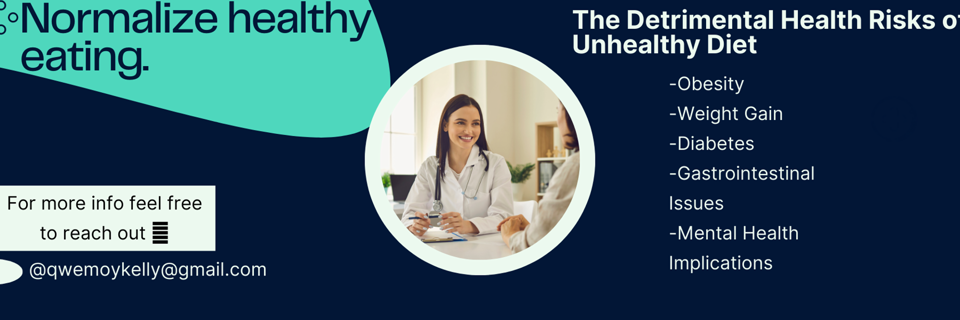
The Detrimental Health Risks of an Unhealthy Diet
Introduction:
In today's fast-paced world, maintaining a healthy diet can often take a back seat to convenience and taste. An unhealthy diet, characterized by excessive consumption of processed foods, sugary beverages, and high levels of unhealthy fats, poses a myriad of health risks that cannot be ignored. From obesity to heart disease, the impact of poor dietary choices can be far-reaching and detrimental to our overall well-being.
-Obesity and Weight Gain:
One of the most immediate and visible effects of an unhealthy diet is obesity. Consuming foods high in refined sugars, unhealthy fats, and empty calories can lead to an excessive calorie intake. This surplus energy is then stored as fat, contributing to weight gain and obesity. The World Health Organization (WHO) has identified obesity as a global epidemic, with serious implications for various health conditions, including diabetes, cardiovascular diseases, and even certain types of cancer.
-Cardiovascular Diseases:
An unhealthy diet rich in saturated and trans fats, as well as excess salt, can significantly raise the risk of developing cardiovascular diseases. Excessive intake of these unhealthy fats can lead to the accumulation of cholesterol in the arteries, causing atherosclerosis and increasing the likelihood of heart attacks and strokes. High sodium intake can contribute to high blood pressure, another major risk factor for heart diseases.
-Type 2 Diabetes:
A diet high in processed sugars and refined carbohydrates can contribute to the development of type 2 diabetes. These foods cause rapid spikes in blood sugar levels, leading to insulin resistance over time. Insulin resistance prevents the body from effectively regulating blood sugar levels, resulting in the onset of diabetes. Maintaining a balanced diet with whole grains, lean proteins, and plenty of fruits and vegetables can help prevent this risk.
-Gastrointestinal Issues:
Processed foods lacking in dietary fiber can lead to gastrointestinal problems, including constipation and irritable bowel syndrome (IBS). Fiber plays a crucial role in maintaining digestive health by promoting regular bowel movements and supporting a diverse gut microbiome. An unhealthy diet devoid of fiber can disrupt this delicate balance and lead to uncomfortable digestive issues.
-Mental Health Implications:
Emerging research suggests a strong connection between diet and mental health. An unhealthy diet lacking in essential nutrients can contribute to mood disorders, such as depression and anxiety. Omega-3 fatty acids found in fatty fish, for instance, are known to have a positive impact on brain health. Consuming a diet rich in fruits, vegetables, whole grains, and lean proteins can support mental well-being.
-Conclusion:
It's evident that an unhealthy diet can have far-reaching consequences for our health and well-being. From obesity and cardiovascular diseases to diabetes and mental health issues, the risks associated with poor dietary choices cannot be overstated. Embracing a balanced diet, rich in whole foods and essential nutrients, is crucial for preventing these health risks and ensuring a longer, healthier life. Making informed food choices and prioritizing nutrition is an investment in our present and future well-being.
0 件のコメント
この投稿にコメントしよう!
この投稿にはまだコメントがありません。
ぜひあなたの声を聞かせてください。
